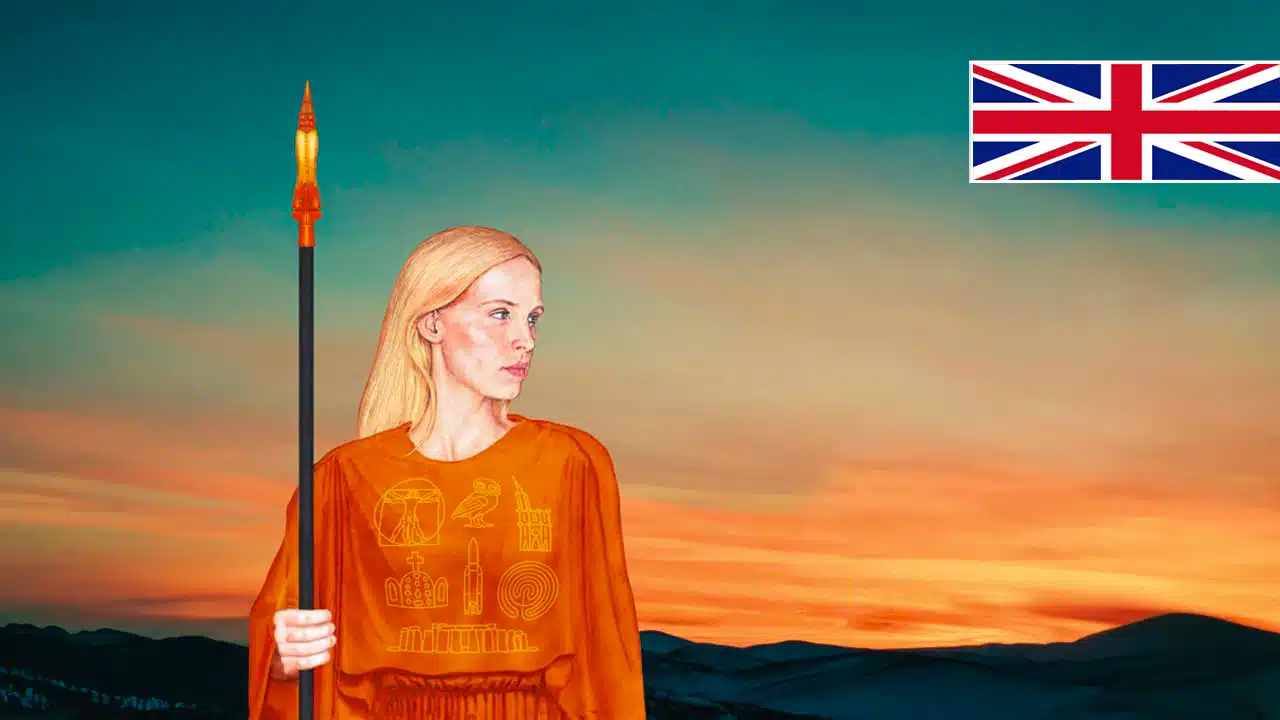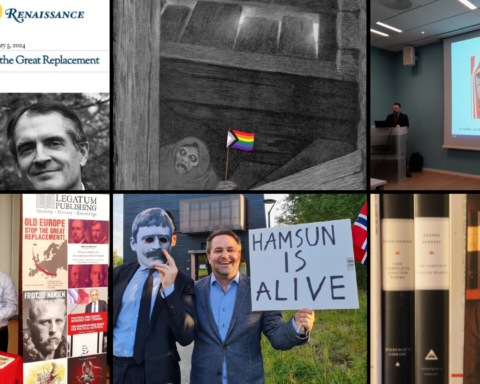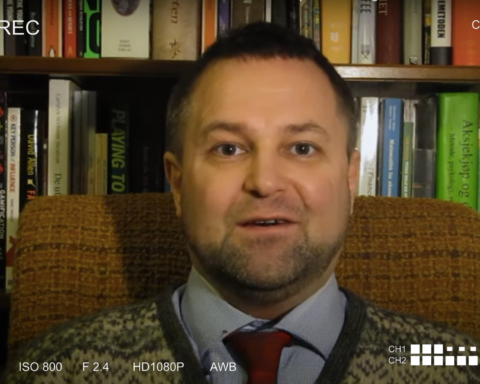Europe is not a simple union of more or less decentralized economic and financial interests, promoting the deregulation of transactions in the ‘Global Village’. It is not a motley conglomeration of uprooted populations, scattered at the whim of market developments across a space without borders or limits, wide open to uncontrolled migration.
Europe is not the vassalized appendage of the West placed under the jealous domination of a superpower with messianic ideals, convinced that it must bring the benefits of its supposedly universal values to the world. Nor is it the peninsula of a Eurasia whose center of gravity lies on the edge of the Ural river.
Europe is not the outcome of a shameful history that should be erased, or even disfigured, in order to impose on its heirs the leaden cloak of a mortifying repentance. Nor is it the nave of madmen, driven by hallucinated and delusional prophets of ‘deconstruction’, bent on undermining the anthropological foundations which guarantee the growth and preservation of cultures, societies and populations.
Europe is not a collection of disfigured landscapes and ravaged nature for the sake of unlimited growth in support of short-termist policies. It is even less a disdain for the desire of power in the name of the delusions of a misunderstood ecology.
Europe is not a parade of technocrats responsible for nurturing “the coldest of all cold monsters”, like a faceless overlord who would strip his vassals of their prerogatives with fussy authority but prove incapable of defending them.
Europe is not the European Union. Europe is something quite different and much more than that. It is both a very ancient legacy and a foreshadowing of the future for the people who embody it.
Europe is a geopolitical area that has been inhabited for thousands of years by a group of closely related populations. Despite the violence of the conflicts that have woven the heroic and tragic fabric of their common history, these populations share a civilizational heritage forged from an alloy of ethnic components that have remained virtually unchanged, on a continental scale, since the beginning of the Bronze Age, two thousand years before the Christian era.
The Celtic expansion, the dawn of Greek philosophy, the rise of the Roman imperium, the Carolingian and Germanic renovatio imperii, the return to the perennial sources of ancient wisdom during the ‘Renaissance’, the reawakening of the sense of identity of the European peoples in the mid-nineteenth century – all these seemingly diverse phenomena are in fact the polyphonic expression of the unique European mindset, expressed in diverse and constantly renewed forms: political, philosophical and artistic as well as scientific and technological, by peoples made from the same crucible.
Unfortunately, the cataclysm that was the “century of 1914”, shook this civilizational layout. More than the massive destruction and losses they caused, the two World Wars led Europeans to doubt themselves dangerously. Often blinded by ideologies that seek to wipe the slate clean from the past in the name of a supposedly “universal sense of history”, our peoples must now emerge from the slumber into which the consumerist materialism of recent decades has plunged them.
For we are not just heirs: this legacy compels us! As of now, it demands our total commitment to meet the challenges of our time with clarity and determination. The stakes are high: the peoples of Europe must now choose between definitive obliteration or fulfill their historic destiny by continuing to freely assert their identity and sovereignty over the continental area where their ingenuity rooted over five thousand years ago.
In this situation, each of us can choose to give up, to try to preserve a lukewarm and more or less comfortable compromise, or on the contrary to remain actively faithful to “what we are” in all areas of our lives, in order to “live as Europeans”. This choice and this commitment will determine what Europe will be for our children.
This is our call: Europe is not only the foundation of our homelands, the “land of our fathers”; it must also become, in Nietzsche’s words, the “land of our children”. Europe is both a myth and a destiny, a memory of our roots and a constantly renewed desire to recapture its original greatness.
Europe is the place where the genius mind of the European peoples erected the megaliths of Stonehenge, the columns of the Parthenon, the naves of the cathedrals, conceived the Homeric rhapsody, the polyphonic music, quantum physics and the Ariane space launcher. Everywhere across Europe, a new generation is rising up, aware of its roots, its identity and its belonging to a common civilization.
Faced with unprecedented challenges, it is now up to them to carry out a genuine “conservative revolution”, designed to free people’s minds from the ideological shackles that hold them back. This is the path to the “great renewal”, the prelude to a rebirth that will lead the peoples of Europe together to regain full control of their geopolitical space. Europe is an ambition for rediscovered power, for the pride of peoples and nations, transcended by the awareness of serving a higher purpose, that of our civilization.
What: The eleventh symposium of the Iliade Institute
When: Saturday April 6. 2024
Where: Maison de la Chimie, 28 rue Saint-Dominique, 75007 Paris.



